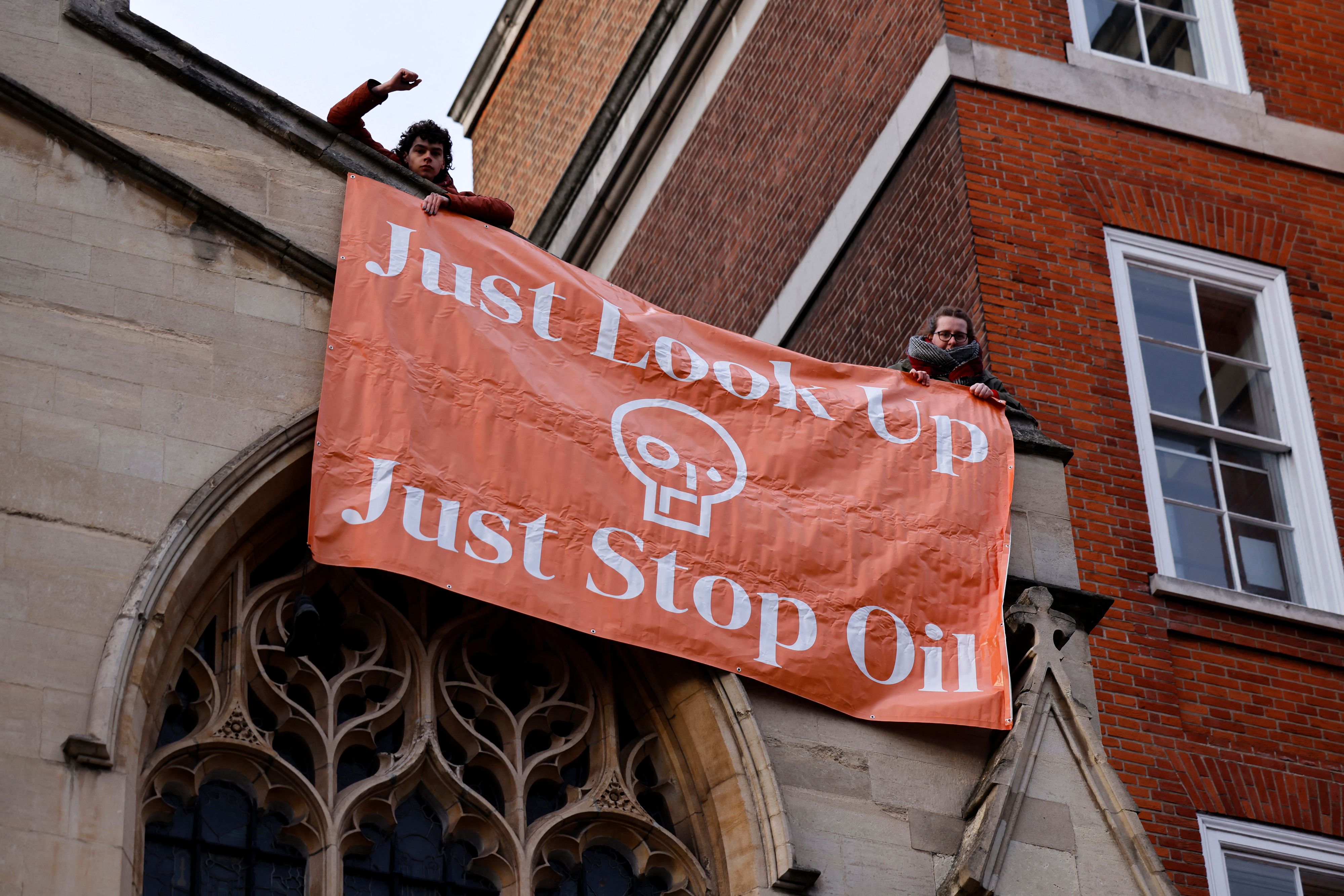An existential war is raging – and I don’t mean in Ukraine
How the battle plays out over coming weeks will determine whether we pull back from the edge, writes Donnachadh McCarthy


Your support helps us to tell the story
From reproductive rights to climate change to Big Tech, The Independent is on the ground when the story is developing. Whether it's investigating the financials of Elon Musk's pro-Trump PAC or producing our latest documentary, 'The A Word', which shines a light on the American women fighting for reproductive rights, we know how important it is to parse out the facts from the messaging.
At such a critical moment in US history, we need reporters on the ground. Your donation allows us to keep sending journalists to speak to both sides of the story.
The Independent is trusted by Americans across the entire political spectrum. And unlike many other quality news outlets, we choose not to lock Americans out of our reporting and analysis with paywalls. We believe quality journalism should be available to everyone, paid for by those who can afford it.
Your support makes all the difference.As Ukraine fights desperately for survival in the face of the existential threat from Vladimir Putin, an even more important battle has broken out to save our planet from the devastating destruction caused by the climate emergency.
On one side is the United Nations (UN) and the International Energy Agency (IEA). Not only do these organisations state that we cannot afford any new fossil fuel investments if we are to hit the 2050 net zero target, they are also backed by the public when it comes to decarbonisation. The European Investment Bank (EIB), too, banned all new fossil fuel investments last year, in a seemingly radical move.
Meanwhile, Barclays, HSBC, Shell, BP and their cheerleaders in the right-wing, billionaire-owned media – including The Sun, The Daily Mail, and a small group of Tory MPs called the Net Zero Scrutiny Group – are notable figures opposing these urgent changes. Indeed, the latest Fossil Fuel Finance Report showed Barclays and HSBC had invested $297bn in fossil fuels since the Paris Agreement in 2015.
The Ukrainian war has triggered an energy crisis, which encouragingly prompted the EU to speed up plans to wean itself off fossil fuels. The IEA also laid out a series of immediate measures to quickly reduce fossil fuel consumption, such as lower road speed limits and reducing public transport fares.The Mail and The Sun screamed instead for the UK to ramp up North Sea oil investments and a return to earthquake-triggering fracking for gas — neither of which would reduce consumer bills by a penny!
Worst still was the government’s reaction, when they failed their moral duty to the Conference of Parties (COP) process and declared that they were unequivocally committed to increased investment in North Sea hydrocarbons.
In Monday’s speech launching the latest Intergovernmental Panel on Climate Change (IPCC) report, the UN secretary general Antonio Guterres excoriated governments and businesses, accusing them of lies and failure to cut global emissions. He added: “Investing in new fossil fuel infrastructure is moral and economic madness”.
As he spoke, climate protectors from the Extinction Rebellion and a new group called Just Stop Oil were unleashing blockades of 13 oil terminals and tanker-surfing, as they made the exact same demand of the UK government – stop all new fossil fuel investments.
Their spokesperson told this column last night that their aim was to interrupt the just-in-time supply chain to petrol stations, to force the government to act, just like the 2000 fuel protests forced governments since then to disastrously pour over £120bn into cutting fossil fuel duties. A year ago, The Independent launched its Stop Fuelling the Climate Crisis Campaign, recognising that to have any hope of a renewable energy economy, we have to stop the flood of trillions of dollars into fossil fuel investments as the minimum first step, and divert this spigot of cash into a fair transition.
It is in this frenzied existential moment in human history, that the Just Stop Oil and the Extinction Rebellion blockades are taking place. There will be naysayers who will oppose any peaceful action that disrupts the public, but all successful human rights movements attracted the same naysaying: Martin Luther King, the suffragettes, Nelson Mandela, and Gandhi were all reviled in their time.
But what is extraordinary is that this time the UN secretary general is passionately on the side of the activists, calling governments and businesses criminal arsonists, setting fire to humanity’s home.
To keep up to speed with all the latest opinions and comment, sign up to our free weekly Voices Dispatches newsletter by clicking here
The actions by Just Stop Oil and Extinction Rebellion are extremely timid when compared to the scale of the genocidal threat. As the Guterres said: “Climate activists are sometimes depicted as dangerous radicals. But the truly dangerous radicals are the countries increasing production of fossil fuels. Investing in new fossil fuels infrastructure is moral and economic madness”.
A Just Stop Oil spokesperson told this column that their tanker-surfing and terminal blockades were designed to be easily replicated by others across the country. They and the Extinction Rebellion are determined to keep up these actions until the government agrees to the IPCC and IEA demand that they stop investing billions in destructive fossil fuel investments. They need to invest instead in renewables, insulation and energy storage, which will not only save humanity but also, with social justice, reduce bills for consumers.
The moment of truth has arrived; there is but a tiny sliver of hope that we do not breach 1.5C. How the battle plays out over coming weeks will determine whether we pull back from the edge and start building it into a 2030 zero carbon lifeline instead, or dash that hope forever.
Join our commenting forum
Join thought-provoking conversations, follow other Independent readers and see their replies
Comments